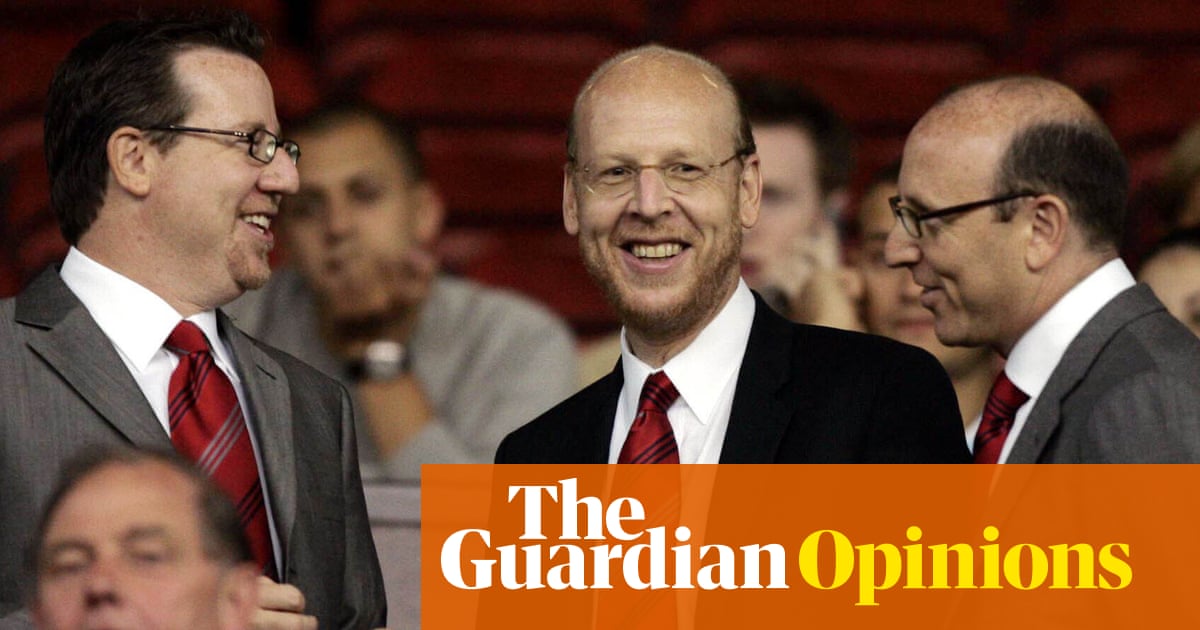The Glazers’ non-exiting exit of Manchester United is the way of the future | Aaron Timms
The Glazers blazed a trail for US money in European soccer. Now they’re innovating again with a non-sale ‘sale’ that gives them all the spoils of ownership with none of the accountability
So, a new era for Manchester United? Not quite: amid all the hullabaloo about a “restructuring” at the club following Jim Ratcliffe’s purchase of a 25% stake – all that talk of job cuts and belt tightening, squad turnover, comings and goings in the executive suite, meetings between Ratcliffe and Erik Ten Hag, a fresh energy both on and off the pitch – it’s been easy to forget that commercial control of the club remains firmly in the hands of the Glazer family. Manchester United’s corporate structure splits ownership into Class A and Class B shares. Real control of the club lies with the owners of the Class B shares, which are worth 10 times the voting rights of Class A shares. Ratcliffe has spent around $1.6bn for a quarter of the club’s Class A and B shares. But even once the deal is approved, the majority of the Class B holding, along with voting power and control of the board, will remain with the Glazer family. If this is the start of the Glazers’ exit from their investment in Manchester United, it is a curiously sedentary departure.
There’s a kind of brilliance to this move, a form of dirty financial sorcery akin to the creation of the credit default swap. The Glazers’ 18-year ownership of Manchester United has been a calamity for Manchester United, which has degenerated over the past decade from the powerhouse of English football into a mid-table club hanging its hopes of Europa League qualification on a late-career revival from Jonny Evans. But it’s been extremely good business for the Glazers, who’ve repeatedly exploited their ownership to enrich themselves while running operations at a consistent loss and lumping the club with crippling levels of debt. Dividend payments since the Glazers’ 2005 takeover have totaled £166 million; the bulk of them have gone to the Glazers themselves. As part of the new deal Ratcliffe and the Glazers have agreed to a three-year freeze on dividend payments, but in the longer term nothing about Ratcliffe’s investment in the club will disrupt this cash flow or the corporate structure underpinning it: as the club’s 2023 annual report notes, “our board of directors has complete discretion regarding the declaration and payment of dividends, and the holders of our Class B ordinary shares [three-quarters of whom remain members of the Glazer family] will be able to influence our dividend policy”. Continue reading...
So, a new era for Manchester United? Not quite: amid all the hullabaloo about a “restructuring” at the club following Jim Ratcliffe’s purchase of a 25% stake – all that talk of job cuts and belt tightening, squad turnover, comings and goings in the executive suite, meetings between Ratcliffe and Erik Ten Hag, a fresh energy both on and off the pitch – it’s been easy to forget that commercial control of the club remains firmly in the hands of the Glazer family. Manchester United’s corporate structure splits ownership into Class A and Class B shares. Real control of the club lies with the owners of the Class B shares, which are worth 10 times the voting rights of Class A shares. Ratcliffe has spent around $1.6bn for a quarter of the club’s Class A and B shares. But even once the deal is approved, the majority of the Class B holding, along with voting power and control of the board, will remain with the Glazer family. If this is the start of the Glazers’ exit from their investment in Manchester United, it is a curiously sedentary departure.
There’s a kind of brilliance to this move, a form of dirty financial sorcery akin to the creation of the credit default swap. The Glazers’ 18-year ownership of Manchester United has been a calamity for Manchester United, which has degenerated over the past decade from the powerhouse of English football into a mid-table club hanging its hopes of Europa League qualification on a late-career revival from Jonny Evans. But it’s been extremely good business for the Glazers, who’ve repeatedly exploited their ownership to enrich themselves while running operations at a consistent loss and lumping the club with crippling levels of debt. Dividend payments since the Glazers’ 2005 takeover have totaled £166 million; the bulk of them have gone to the Glazers themselves. As part of the new deal Ratcliffe and the Glazers have agreed to a three-year freeze on dividend payments, but in the longer term nothing about Ratcliffe’s investment in the club will disrupt this cash flow or the corporate structure underpinning it: as the club’s 2023 annual report notes, “our board of directors has complete discretion regarding the declaration and payment of dividends, and the holders of our Class B ordinary shares [three-quarters of whom remain members of the Glazer family] will be able to influence our dividend policy”. Continue reading...

Komentar
Posting Komentar